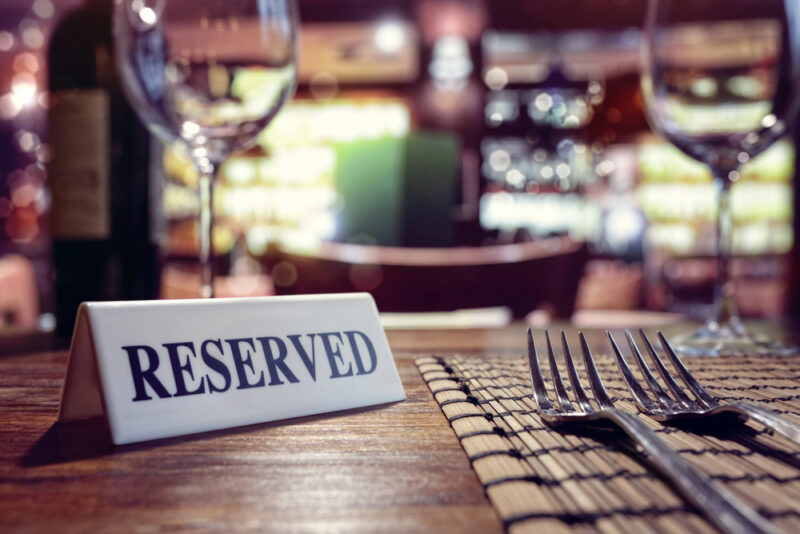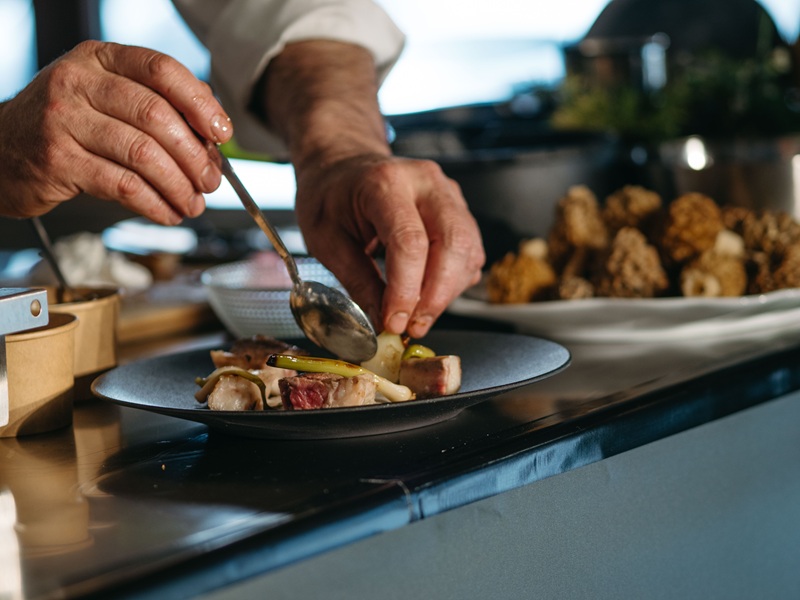The restaurant world always brings surprises, and not always delicious dishes or refreshing drinks. Lately, a trend has emerged that has left more than a few people scratching their heads: some bars and restaurants are starting to charge extra for booking a table or adding unexpected costs without warning. But to what extent is this legal? Let’s break this question down a bit.

The legality behind the supplements
First, let’s talk about the legality of these supplements. According to the Diputació de Barcelona, restaurants cannot charge an additional price for things like table reservations without prior notice. In other words, if you go to a restaurant and they charge you more than you expected, and they had not warned you, you have the right to complain.
In Girona, for example, a case arose in which a restaurant charged customers who reserved a table and did not show up, arguing “management fees”. Of course, this caused some controversy. The law allows compensation for cancellations or no-shows, but this must not be disproportionate and, above all, must have been reported in advance. If an advance payment is made, that amount must be deducted from the total.
Complaints: your rights as a consumer
If you ever find yourself in such a situation, don’t worry, you are not alone. You can ask for the official complaint form at the establishment. And if after 30 days you do not get a satisfactory response, you can contact the public consumer service of your local council. The website diba.cat offers more information on this subject.
Tips to enjoy your dinner without unpleasant surprises
Some recommendations provided by the Consumer Policy Support Service can help you avoid misunderstandings on your next outing:
The menu card
Prices must be clearly specified, without concepts such as “VAT not included” or “price according to market”. In addition, the letter must be presented in writing, either on paper or on whiteboards, never just on a QR. And, of course, it must be at least in Catalan, including information on possible allergens.
The ticket
A restaurant cannot charge for items you did not order, such as bread. Nor can they deduct them from the menu if you do not consume them. And if you prefer to sit on the terrace instead of at the bar, they can charge an additional fee, but they must clearly indicate it. In addition, the minimum amount accepted for card payments should be specified, and it is mandatory to accept cash payments up to 1,000 euros.
The service
Restaurants are public premises and must allow free access. Although the owner may exercise the right of admission, this must always be on objective and non-discriminatory grounds. They may also impose restrictions such as a minimum spend or limit the length of stay, but again, this must be informed in advance.
Supporting responsible consumption
This action by the Diputació de Barcelona is not merely regulatory. It is part of a broader commitment to the Sustainable Development Goals (SDGs), specifically SDG number 12, which promotes responsible consumption and production. These goals, proclaimed by the United Nations General Assembly in 2015, are part of a global agenda for 2030. And it seems that Barcelona is committed to doing its part.
At the end of the day, what we all want is to enjoy a good meal in a nice place without unpleasant surprises on the bill. But if you ever find yourself in a situation where you feel incomplete or unfairly treated, remember that you have rights and there are avenues for complaints and grievances. At the end of the day, a well-informed customer is a happy customer.



